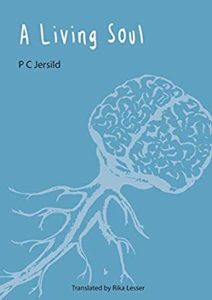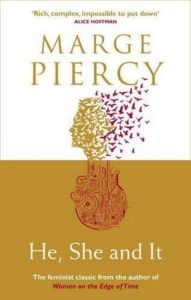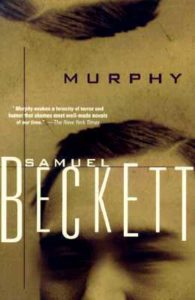





HL4042 Being Human in Literature and Film
In this course, we regard the ‘human’ as (1) an evolving concept and (2) a lived experience. As a concept, we trace the theoretical understanding of the human from humanism, transhumanism to posthumanism. As a lived reality, we consider our place in the shifting relations between the human, the nonhuman and our environments. By close reading selected films, literary works and critical writings, we will explore encounters between the humanities and the sciences to rethink our relationship with our immediate reality. Our central question is: What does it mean to be human in the face of rapid technological advances, digitalization, climate change and the destruction of biodiversity?
HL3039 Major Author Study: Samuel Beckett
One of the most important twentieth century writers, Samuel Beckett’s prose, plays and poems continue to influence writers, readers and audiences all over the world. Although he is well known for the play Waiting for Godot, most of his works remain cryptic to the uninitiated. This module is for those who would like to dive deeper into the Beckettian world. In it, you will discover a poetics of failure, an ethics of non-relation, and perhaps most importantly what it could mean to be at the limit of the human.
In this course, we will close read Beckett’s selected novels, plays, short prose and poems. We will chronologically trace Beckett’s development as a writer. By the end of the course, our focus on issues of form and content, reality and virtuality, as well as humanity and animality, should enable you to think critically about how his works continue to provoke readers and audiences to reconsider assumptions of lived reality.
HL3038 Theatre of the Absurd
Martin Esslin coined Theatre of the Absurd to group together a substantial number of post-World War II dramatic works that questioned realism and challenged the conventional dramatic form. There was no Absurdist movement, and most playwrights whom we consider Absurdists did not identify themselves as such. Nevertheless, the designation is useful to begin thinking about their shared concern for what it means to be human in a time of social and political upheaval. You will be provoked to consider this central question as you learn more about the playwrights’ dramatizations of habit, time, humour and suffering.
The course will train you to close read Absurdist plays, and develop an appreciation for their destabilising effects on actors and the audience member. By the end of the course, you are expected to be able to differentiate between the social, historical, philosophical factors that affect the writing and production of absurdist drama. The seminar format will facilitate discussions as you share your reading, viewing, and performance/staging experiences with the class.
HL3001 Introduction to Film Theory
This course will introduce to you the history of and key debates in film theory. You will be exposed to various ways of thinking and writing about films. The course is divided into four thematic units: Ontology (What is film?), Epistemology (How do films create meaning?), Aesthetics (What makes a film ‘powerful,’ ‘poignant,’ or ‘sublime’?), and Ideology (How does a film relate to society and politics?). We will attempt to answer these questions (and many more) as we close read critical essays and selected films.